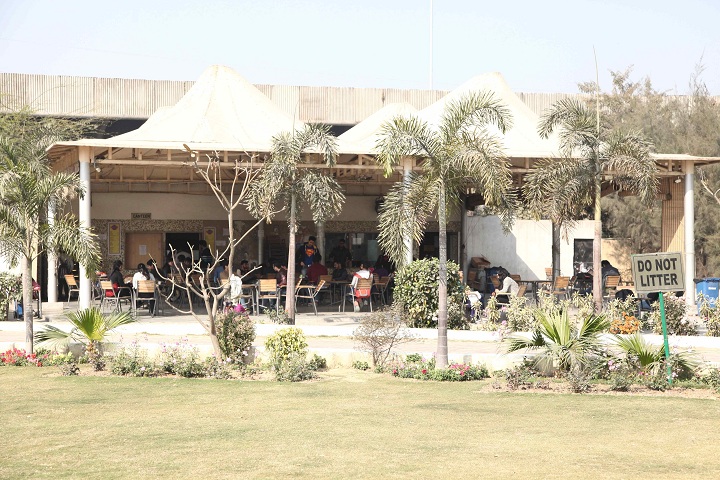
Banking and Insurance Course Details - Fees, Subjects, Syllabus, Duration, Eligibility, Career Scope
Degrees offered: B.Com, B.B.A, B.Com(Hons), B.Voc., M.Com
What is Banking and Insurance
The Banking and Insurance course is designed to provide students with a comprehensive understanding of the financial services industry. It also focuses on the fundamental concepts, operations, and regulations of both banking and insurance sectors. Financial markets, banking operations, risk management, insurance principles, and financial analysis are among the subjects that are usually covered in the course.
Students gain knowledge of the tasks and responsibilities of banks and insurance businesses, as well as the goods and services they provide and the legal frameworks that control them. Students who acquire this core knowledge will be better equipped to take on a range of responsibilities in the financial industry by improving their analytical, problem-solving, and decision-making abilities.
Around 45 colleges in India offer courses in Banking and Insurance. Graduates are offered job opportunities in profiles like Accountants, Financial Advisors, Insurance Managers, and Loan Counsellors. Companies like JPMorgan Chase & Co., Bank of America, Prudential Financial, MetLife, UnitedHealth Group, Goldman Sachs, Morgan Stanley, HDFC Bank, Canara Bank, and State Bank of India recruit graduates for an average package of Rs. 6.8 LPA.
Banking and Insurance Course Details- Highlights
| Particulars | Values |
|---|---|
Branch Name | Banking and Insurance |
Banking and Insurance Degrees | B.B.A, B.Com, B.Com(Hons), B.Voc., Diploma, M.Com, M.Voc |
Banking and Insurance Course Duration | UG: 3 years PG: 1-2 years |
Banking and Insurance Eligibility Criteria | UG: 10+2 in any stream PG: Graduation in any field with a minimum 50 per cent aggregate |
Banking and Insurance Admission Process | Entrance examination/Merit-score |
Banking and Insurance Entrance Exam | UG: CUET UG, IPU CET PG: CAT, XAT, SNAP, MAT |
Banking and Insurance Course Fees | Rs. 15,000 - Rs. 20 lakhs |
Job Profiles | Accountants, Financial Advisors, Insurance Manager, Loan counsellors |
Average Salary | Rs. 6.8 LPA |
Recruiting Companies | JPMorgan Chase & Co., Bank of America, Prudential Financial, MetLife, UnitedHealth Group, Goldman Sachs, Morgan Stanley, HDFC Bank, Canara Bank, State Bank of India |
Specialisation or Similar Ones
Banking and Insurance offer many specialisations that cater to the diverse needs of the financial services industry. These specialisations enable the graduates to focus their careers in a specific field and enhance their career prospects within the banking and insurance or similar disciplines. Some of the specialisations or similar fields in Banking and Insurance.
Retail Banking | Risk Management |
Digital Banking and Fintech | |
Insurance Underwriting | Financial Planning and Advisory |
Top Private Banking and Insurance Colleges in India with Fees
Many private institutes in India offer Banking and Insurance courses at both undergraduate and postgraduate levels. Private colleges often charge a much higher tuition fee as compared to government institutions. These colleges are known to provide good educational facilities and a multipurpose college campus. Some of the top private universities and colleges for Banking and Insurance, and their fees are discussed below:
| Colleges | NIRF Rankings | Fees |
|---|---|---|
| 43 | Rs. 20.40 Lakhs | |
| Amity University, Noida | 49 | Rs. 10 Lakhs |
| IPE Hyderabad | - | Rs. 8 Lakhs |
| School of Business, UPES Dehradun | - | Rs. 20.75 Lakhs |
| Shoolini University Solan | - | Rs. 7.22 Lakhs |
| SSIM Hyderabad | - | Rs. 7.90 Lakhs |
| ADTU Guwahati | - | - |
| RIMT University | - | Rs. 4.35 Lakhs |
| SAGE University | - | - |
Top Government Banking and Insurance Colleges in India with Fees
Attending a government college is less expensive than attending a private college. These colleges are well known for their high academic standards and affordable fees throughout India. They provide the best return on investment to students. The following are some of the best government colleges that provide Banking and Insurance:
Eligibility Criteria (UG & PG) of Banking and Insurance
Those interested in pursuing a degree in Banking and Insurance need to fulfil the eligibility details required by the colleges. For undergraduate degrees, students generally need to complete their 10+2. For PG degrees, they require a Bachelor’s degree in similar or related disciplines. The eligibility details for Banking and Insurance courses are mentioned below.
Eligibility Criteria for UG Courses
The eligibility criteria for undergraduate courses in Banking and Insurance may be different for all institutes. Candidates who wish to pursue Banking and Insurance at an undergraduate level must satisfy certain eligibility criteria. Some of the most common eligibility conditions to get admission into the course are listed below:
- Candidates must have completed their 10+2 in any stream from a reputed university or institute.
- Aspirants must have cleared their higher education with a minimum of 50 per cent marks.
- No age limit has been prescribed for Banking and Insurance courses admission.
Top Entrance Exams for UG Courses
Aspiring candidates need to appear for certain entrance examinations before applying for admission. Some colleges may conduct university-specific examinations for Banking and Insurance courses and others may only consider the merit scores of students for admissions. In the table below, we have provided the details of some popular examinations for UG degrees.
| Exam Name | Exam Level | Conducting Body | Exam Schedule |
|---|---|---|---|
National | National Testing Agency | ||
University | Guru Gobind Singh Indraprastha University | - |
Eligibility Criteria for PG Courses
Students who have completed their undergraduate in Banking and Insurance can further pursue their post-graduation in the same field. Candidates must keep in mind the eligibility criteria of postgraduate courses in Banking and Insurance. These conditions may vary by the institute. However, aspirants must fulfil the eligibility requirements listed below:
- Candidates must have completed their graduation in the same or related field.
- Students must complete their graduation with a minimum aggregate score of 50 per cent. The aggregate percentage may be different for different institutes.
- A relaxation of 5 per cent may be provided to the candidates belonging to the reserved categories.
Top Entrance Exams for PG Courses
Candidates who aspire to pursue their post-graduation must appear for certain entrance examinations. Many colleges grant admissions to students based on their entrance test results as well as their merit scores. Students are required to clear the cutoff of these high-level tests to get admitted into a college of their choice. Some of the examinations are as follows.
| Exam Name | Exam Level | Conducting Body | Exam Schedule |
|---|---|---|---|
National | Indian Institutes of Management Lucknow | ||
University/National | XLRI, Jamshedpur | ||
University/National | Symbiosis International University | ||
National | All India Management Association |
Scope of Banking and Insurance in India and Abroad
The banking and insurance industry in India is growing because of the country's economic expansion, technological improvements, and rising financial literacy. The emergence of digital banking, efforts to promote financial inclusion, and government policies are causing substantial changes in the Indian banking industry. There is an increasing need for cutting-edge financial products, mobile banking options, and customised client experiences.
The sector is experiencing significant global disruption due to digitalisation, regulatory obstacles, and evolving consumer preferences. In mature markets, enhancing efficiency, security, and customer happiness through the integration of modern technologies is the main focus. Financial institutions are working to make banking and insurance services more accessible and widely used, which is driving the rapid growth of emerging economies.
Course Fees Banking and Insurance
| Minimum Fees | Maximum Fees | |||
|---|---|---|---|---|
| Private | Government | Private | Government | |
| UG | ||||
| PG | ||||
| DIPLOMA | ||||
Course Subjects
The syllabus for Banking and Insurance may vary depending on the level of the programme and the institution. The subjects in Banking and Insurance courses prepare students for the corporate world by providing them with practical exposure. In this section, we will discuss the Banking and Insurance syllabus for UG and PG-level degrees.
Banking and Insurance Syllabus for UG Degrees
The academic curriculum of undergraduate in Banking and Insurance equips students with the necessary knowledge and practical experience thus providing a holistic growth opportunity. The subjects of the programmes may be different for various institutions. However, the syllabus of BBA Banking and Insurance provided by Guru Gobind Singh Indraprastha University is as follows.
First Semester | Second Semester |
Financial Accounting I | Financial Accounting II |
Principles and Practices of Banking | Insurance Law and Practice |
Business Management | Principles and Practices of Banking II |
Principles of Insurance | Financial Mathematics |
Third Semester | Fourth Semester |
Company Accounts I | Company Accounts II |
Business Economics | Services Marketing |
Legal Regulatory Aspects of Banking I | Legal Regulatory Aspects of Banking II |
Financial Management | E-Commerce & E-Business |
Fifth Semester | Sixth Semester |
Income Tax | Management Accounting |
Cost Accounting | Auditing |
Financial Statistics | Business Communication |
Business Environment | - |
Banking and Insurance Syllabus for PG course
Master’s degree in Banking and Insurance is for either one or two years with a range of subjects related to human resource, finance, and accounting principles. The programme prepares students for the corporate world by providing practical exposure and theoretical knowledge. A structured syllabus for a Post Graduate Diploma in Banking and Insurance offered by Rajiv Gandhi University is provided below:
First Semester | Second Semester |
Fundamentals of Banking | Accounting of Banking and insurance companies |
Fundamentals of Risk and Insurance Management | HRM in banking and insurance Companies |
Management and Regulation of Bank | IT in Banking and insurance Companies |
Management and Regulations of Insurance companies | Project report (internship) |
Careers in Banking and Insurance
Careers in banking and insurance offer a wide array of opportunities for individuals interested in the financial sector. These industries offer jobs in investment banking, risk management, insurance underwriting, retail and corporate banking. Professionals can operate in fast-paced settings that call for a strong sense of strategic thinking, analytical abilities, and customer service knowledge. Some of the career options in the field:
| Job Profiles | Job Description |
|---|---|
Accountants are professionals responsible for managing financial records, preparing financial statements, and ensuring compliance with accounting standards and regulations. They analyse financial data to assist in decision-making and maintain the accuracy of financial information. | |
A financial advisor provides personalised financial planning and investment advice to clients, helping them manage their finances and achieve their financial goals. They offer expertise in areas such as budgeting, retirement planning, and asset management. | |
Insurance Manager | An insurance manager oversees the operations of an insurance company or department, including managing insurance policies, underwriting processes, and claims handling. They are responsible for ensuring that the company's insurance products are effectively designed and administered. |
Loan counsellors | Loan counsellors assist individuals and businesses in understanding and managing their loan options, including mortgages, personal loans, and student loans. They provide guidance on loan applications, help evaluate financial needs, and offer advice on improving credit scores and managing debt. |
Upcoming trends
Rapid technological improvements and changing consumer expectations are the driving forces behind upcoming changes in insurance and banking. AI, blockchain, and fintech innovations are transforming services and improving cybersecurity through digital transformation. The future of these sectors is also being shaped by an emphasis on sustainability and changing regulatory constraints, which presents financial institutions with both new opportunities and difficulties.
- Fintech Integration
- Personalization and Customer Experiences
- Cybersecurity
- Regulatory Changes and Compliance
- Blockchain
- Sustainable Finance and Insurance
- Data Analytics
Job Profiles and Top Recruiters
The banking and insurance industries offer job profiles that address the changing demands of the financial industry. Financial management, customer service, and regulatory compliance are skills that are necessary for a variety of occupations, from analytical roles to consumer-facing positions. With the sector changing due to new market needs, professionals in various fields are finding new and interesting avenues for specialisation and progress.
Top Recruiters:
- JPMorgan Chase & Co.
- Bank of America
- Prudential Financial
- MetLife
- UnitedHealth Group
- Goldman Sachs
- Morgan Stanley
- HDFC Bank
- Canara Bank
- State Bank of India
Average Salary
Candidates in the field of Banking and Insurance are offered lucrative benefits and high salary packages. At the start of their career, a candidate with appropriate skills gets a high-paying job. However, the average salary for graduates can vary depending on the location of the firm, specialisation and experience. The average salary structure of some of the most common job profiles are provided below:
| Job Profiles | Average Salary |
|---|---|
Chartered Accountant | Rs. 11.1 LPA |
Financial Advisors | Rs. 4.8 LPA |
Insurance Manager | Rs. 4 LPA |
Loan counsellors | Rs. 2.5 LPA |
Source: Ambition Box
The salary figures mentioned anywhere in these articles are just for reference purposes. Please treat them as such. Actual salaries may vary depending on respective candidates, employer, job location, and numerous other factors.
Required Skillset for Banking and Insurance
A career in banking and insurance requires a diverse skill set to handle various responsibilities and adapt to the evolving financial landscape. A combination of various skills and qualities can help students to excel in their studies and further in their careers. Mentioned below are some of the important attributes and skills required for the Banking and Insurance field.
- Analytical Skills
- Customer Service
- Financial Literacy
- Risk Management
- Technological Proficiency
- Strategic mindset
- Leadership skills
- Ethics and Integrity
Course Curriculum for Banking and Insurance
A banking and insurance programme's course curriculum blends theoretical information with real-world applications to provide students a thorough understanding of the financial services sector. Financial accounting, economics, banking concepts, and insurance fundamentals are examples of core disciplines. The curriculum also includes electives and specialised courses that allow students to focus on areas such as investment banking, wealth management, or actuarial science.
Students gain knowledge of risk management, banking procedures, insurance goods and services, and financial markets and instruments. Business law and regulatory framework courses are essential as they provide insights into the legal and compliance factors that control the sector. Practical components like case studies, internships, and projects are incorporated to give students hands-on experience and exposure to real-world financial scenarios.
Popular Banking and Insurance Entrance Exams in India
Frequently Asked Questions (FAQs)
Question: Is pursuing courses in Banking and Insurance a good career option?
Answer :
Yes, Due to the stability and growth potential of the banking and insurance industries, pursuing studies in the field is a good career path. Professionals benefit from a variety of possibilities, attractive wages, and career growth pathways in areas such as risk management, investment banking, and financial advising.
Question: What is the average salary in the field?
Answer :
The average salary in Banking and Insurance is Rs. 6.8 LPA in job profiles like Accountants, Financial Advisors, Insurance Manager and Loan counsellors.
Question: What is the scope of Banking and Insurance?
Answer :
The banking and insurance industries have a wide range of applications and present many prospects for development and innovation. These industries supply credit, risk management, and financial planning, which fuels the need for qualified workers in fintech, regulatory compliance, and customer relationship management.
Question: Are there any particular criteria related to streams or background to get admitted to the Banking and Insurance courses or programs?
Answer :
Students from any course or stream can pursue courses in Banking and Insurance. But, students from a commerce background or knowing subjects like economics and accounting have a plus point in this field.
Question: What are some of the top companies hiring Banking and Insurance?
Answer :
JPMorgan Chase & Co., Bank of America, Prudential Financial, MetLife, UnitedHealth Group, Goldman Sachs, Morgan Stanley, HDFC Bank are some of the major recruiters.
Questions related to Banking and Insurance
I am not good in maths also i dont have much interest in mahs, so shall i go for b.com in banking and insurance or not
Dear Aspirant !!
Hope you are doing good ! Yes definitely you should go for it . These are the courses which are best and even don't neet maths .
- B.Com (Bachelor of Commerce)
- B.Com (H) (Bachelor of Commerce Honors)
- BBA (Bachelor of Business Administration)
- LLB (Bachelor in Law / Legum Baccalaureus)
- CA (Chartered Accountancy)
- CMA (Certified Management Accountancy
Can a student studying vocational banking and insurance get admission in bcom honours?
Dear Aspirant!
Yes, a student studying vocational Banking and Insurance can often get admission in B.Com (Honours) programs. However, admission policies may vary among colleges and universities. Some institutions might have specific criteria or additional requirements for students with a vocational background.
Elaboration :
- Check Admission Policies: Contact the specific college or university where you plan to apply. Inquire about their admission policies for students with a vocational background.
- Academic Eligibility: Ensure that you meet the academic eligibility criteria for B.Com (Honours) programs. Colleges typically consider your performance in relevant subjects.
- Additional Requirements: Some institutions may require you to take additional entrance exams or interviews. Be aware of any such requirements and prepare accordingly.
- Documentation: Prepare all necessary documents, including certificates related to your vocational course, for the admission process.
- Explore Options: Research multiple colleges offering B.Com (Honours) and consider their admission criteria. This helps you choose the most suitable option based on your background and career goals.
It's advisable to reach out to the admission office of the specific college you're interested in for the most accurate and detailed information regarding the admission process.
first second third year subject in banking and insurance course
Hello Aspirant,
Hope you are doing great. For students who already studied commerce in their 10+2 level, banking and insurance are quite common. Millions of people work in this industry every day, making it a very popular one. In this country, there are many opportunities for growth in the banking and insurance industries. On the other hand, one of the safest industries is banking and insurance, and for the workers, the position is more secure than in some other industries. For new employees, it is a very good career option to select because there are many job opportunities that are both satisfying and plentiful.
If you want to know the subjects and entrance exams along with courses you can use the below link:
https://dqxeclau.top/courses/banking-and-insurance-course
ALL THE BEST
I have completed my graduation in B.com (banking and insurance) what can I study next ?
Dear aspirant hope you are doing well..
There are many career opportunities after B. Com and if you want to go for higer degree, you can go for M. Com or MBA . Start preparation for C. A Or C. M. A Or many more.
Career opportunities after B. Com are.
These Specializations are created keeping in mind the growing demand for important skills such as Leadership , critical thinking , etc. Some of them are
- Logistics and Supply chain management
- Operations management
- Materials management
- Marketing
- General Management
- IT Management
- Marketing Management
- Financial Management
- Human Resource Management
- International Business
- Strategic Management
- Sales and marketing
- Business Analytics
- Information Technology
- Entrepreneurship
- Product Management
- Retail Management
- Economics
FOR Detailed information about the B. Com click on the link below
https://dqxeclau.top/courses-certifications/articles/top-14-career-options-to-pursue-after-bcom
Hope it's helpful thank you
about b.com banking and insurance
Good Evening
Bachelor of Commerce in Banking & Insurance or commonly known as BBI is a specialization of commerce related to the banking and insurance sectors. B.Com BBI course comprises the study in detailed concepts related to banking, bank laws , insurance laws, accounting and risk management . B.Com in banking and insurance is a 3 year undergraduate degree which follows the semester pattern and comprises 6 semesters.
For more information about b.com banking and insurance checkout given link below
https://dqxeclau.top/courses/b-com-in-banking-and-insurance
Hope you found it helpful.












 Answer later
Answer later









